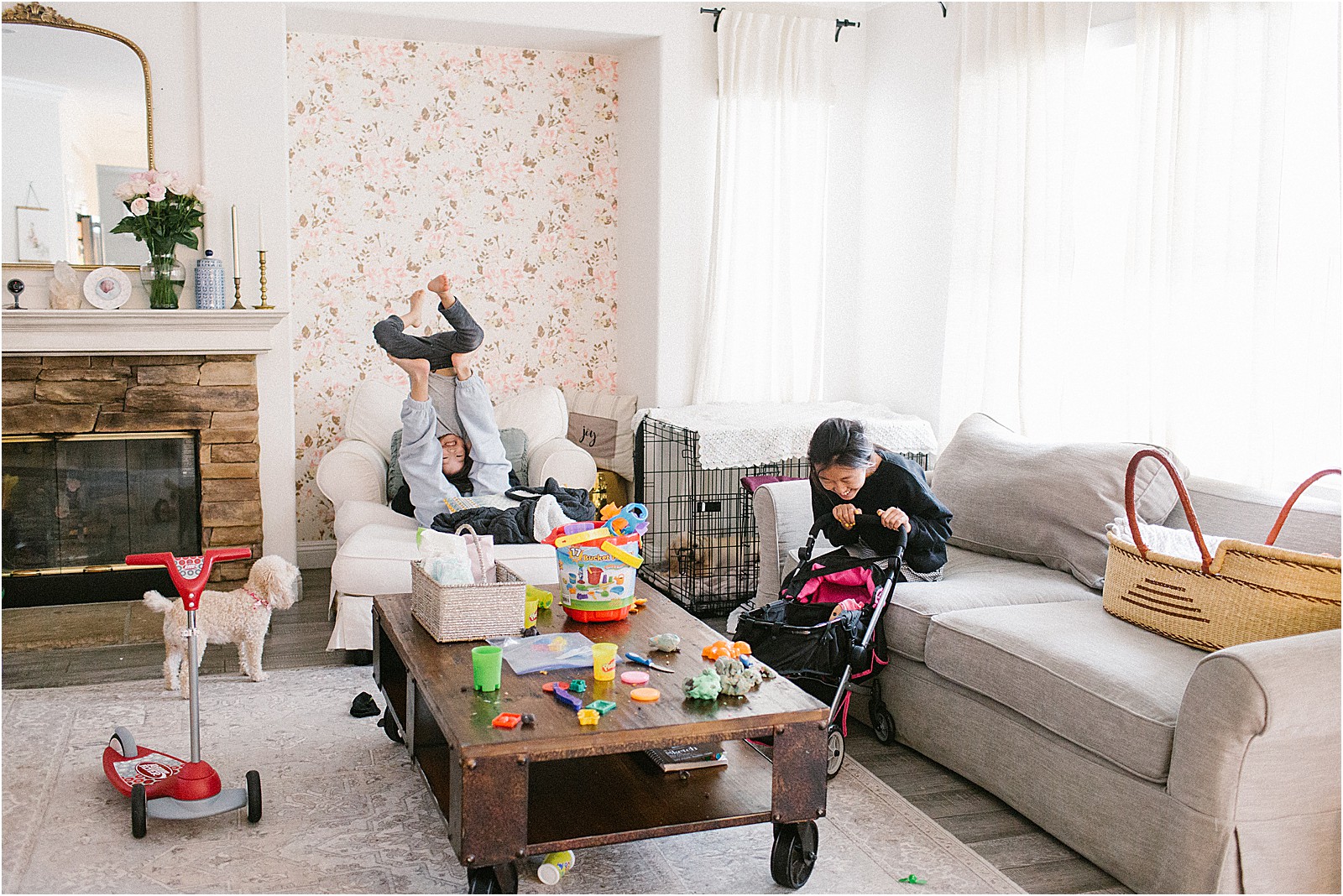I am a proud Responsibility.org ambassador this year and was compensated to write the post. As always, all opinions are my own.
How are you feeling today?
We are over six months into the pandemic, and we are tired. We’re tired of limited activities outside of the home, we’re tired of balancing all the things…our job, monitoring our kid’s virtual schooling, keeping the house clean, and maintaining some sort of sanity. We have no alone time and no boundaries. We’re even tired of the word pandemic. Whether you’re a mom, dad, grandparent, or teacher, I am standing with you in solidarity. This is a tough time.

Parenting in a Pandemic: 6 Month Check in
Looking at the chaos through a different lens
Are you experiencing more meltdowns than normal with your children? Maybe you’re feeling a little out of control, anxious, and totally overwhelmed. I know that I’ve had many days in the past six months where I feel like I am seriously failing as a parent. Many of those days involve me locking myself in my office with my kids fiercely trying to knock the door down…all because I needed to get some work done. The lines of parenting and work are blurred, and with that challenge comes a lot of mom guilt.
I recently heard a presentation by author Meghan Leahy, who wrote the book Parenting Outside the Lines. Megan talked to us about the term rupture.
By rupture, she is referring to the meltdowns, the yelling, the chaos.
Check, check, check.

I don’t know about you, but we are experiencing all of these at my house.
But then Megan said something that totally changed my view of things, and made me feel a little less of a failure.
She said, “If you don’t have rupture at home, you’re not with them.”
By saying that, she normalized all the things that are happening to all of us around the world. It was a reminder that we aren’t alone in our feelings and thoughts. Experiencing these stressful moments doesn’t mean we’re failing as parents, it simply means that we are present with our families. If we weren’t in the midst of what sometimes feels like a tornado in our home, that would mean that we aren’t WITH our children. I want to pass this message on to you, and to all the parents who are struggling today, because creating a conversation around this topic is healthy and necessary during this time.
The truth is, things are far from perfect right now, and we’re struggling, but we aren’t alone.
 How do we Maintain Resiliency?
How do we Maintain Resiliency?
The big question is, how do we continue to be resilient despite all the uncertainty? How do we bring some ease to our family?
1. Understand that ruptures are normal
Ruptures are typical at any age. They are caused by feelings of frustration. Both children and adults can be triggered to feel frustrated these days.
2. Stay curious
If you or your child has a meltdown, instead of getting angry at ourselves we can get curious. Rather than feeling shameful after a rupture, reflect on why you may have yelled or lost your patience as a parent. For your child, talk to them about why they may have completely lost their cool and gotten angry. Practicing curiosity helps us understand patterns in our behaviors so we can recognize the causes and avoid repeating the rupture.
For example, if your child tends to throw a tantrum every day around the same time, get curious about why this is happening. Are they hungry? Do they need to have time away from their computer screen? Do they need to get outside?
3. Be honest
Getting curious about frustration and anger triggers can lead to having honest conversations with your family. If you have lost your patience with your son or daughter for a reason that has nothing to do with them, then be honest about that. More importantly, take that opportunity to apologize to them for taking your frustrating out on them. This will model trustworthy and honest behaviors for your children. It’s just as important for kids to hear an apology from parents as it is for kids to take ownership of their behaviors.
4. Hold family meetings
During the responsibility.org discussion that I was a part of, Meghan Leahy made a great suggestion of holding family meetings. You can plan to hold these as often as you’d like (nightly, once a week, one every other week, etc.). The idea is that the family meeting would be a time where you gather as a family and allow the kids to have a space to vent, while also giving parents the opportunity to ask for help.
You can also use this time to plan something fun together, like a movie night or an art project. This type of meeting shows everyone respect and gives each family member a voice in planning. Most of all, planning a fun activity will give everyone something to look forward to.
So, how are you feeling about parenting in a pandemic? What are ways that you’re staying resilient right now? Let me know in the comments. I always love to hear from you!
For more tips on parenting during the pandemic, check out this post about healthy coping strategies during stressful times or this post on helping our kids through loss of rituals.

 How do we Maintain Resiliency?
How do we Maintain Resiliency?